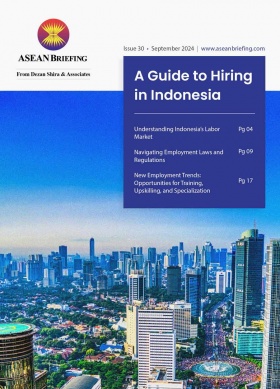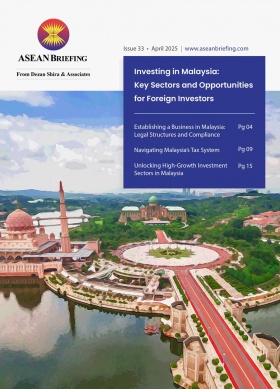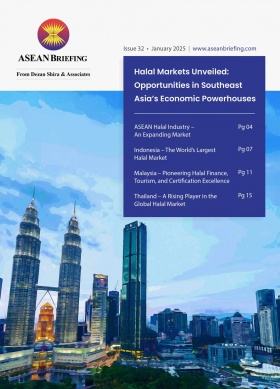Brunei’s Economic Diversification Efforts: Moving Beyond Oil and Gas
Brunei has long been synonymous with oil and gas wealth, with these resources forming the backbone of its economy for decades. While this dependence has enabled the nation to achieve high living standards, it also presents significant risks. Fluctuating global energy prices, diminishing reserves, and an urgent need for sustainable growth have made economic diversification a national priority.
In response, Brunei has embarked on a strategic transformation to expand its economic base beyond hydrocarbons. Guided by Wawasan Brunei 2035, the country is working toward a future beyond oil, fostering a more resilient and sustainable economy.
Brunei’s economic landscape: A legacy of oil and gas
Oil and gas have been the pillars of Brunei’s economy, contributing approximately 50.3 percent of the GDP as of mid-2024. Despite efforts to diversify, non-oil sectors still lag, making up 49.7 percent of economic output. Government revenues are heavily tied to hydrocarbon exports, with oil and gas revenues reaching BND 2.6 billion in 2024—less than half of the BND 5.4 billion collected in 2023. This decline reflects broader production challenges, as daily oil output has fallen to 121,034 barrels, with total proven reserves projected to be depleted by 2048 at current extraction rates.
Why diversification is crucial
Brunei’s economic structure leaves it vulnerable to external shocks, and the risks of continued reliance on hydrocarbons are evident in several key areas:
- Oil price volatility: Brunei’s fiscal health is highly sensitive to oil price fluctuations. With a fiscal breakeven oil price estimated at US$60 per barrel, any dip below this level places strain on government finances.
- Employment pressures: The oil and gas sector employs a significant portion of the workforce, but the industry’s job creation capacity is limited. Meanwhile, the national unemployment rate stood at 4.7 percent in 2024, highlighting the need for new opportunities in non-oil industries.
- Global green transition: As countries worldwide accelerate their shift toward renewable energy, Brunei must adapt to remain competitive. The nation has committed to achieving net-zero carbon emissions by 2050, necessitating substantial reforms in its energy and industrial sectors.
Wawasan Brunei 2035: A roadmap for growth
Brunei’s economic diversification is anchored in Wawasan Brunei 2035, a national vision that prioritizes sustainable development and economic resilience. Under this framework, efforts have been made to expand the non-oil sector through investment-friendly policies and infrastructure development.
Progress has been mixed. While the non-oil sector has seen modest growth, overall GDP expansion remains constrained by oil market fluctuations. However, Foreign Direct Investment (FDI) inflows suggest positive momentum.
Infrastructure projects under Wawasan Brunei 2035 have also facilitated economic diversification. Public-private partnerships have driven improvements in transportation, digital infrastructure, and industrial parks, creating a more conducive business environment. Efforts to support Micro, Small, and Medium Enterprises (MSMEs) have further enhanced non-oil sector participation.
Key sectors driving diversification
To achieve sustainable economic growth, Brunei is actively promoting several priority industries:
- Tourism and Hospitality: Investment in tourism infrastructure and cultural heritage sites aims to attract international visitors. The sector is viewed as a key driver of employment and local enterprise development.
- Islamic Finance: Brunei is leveraging its strong Islamic banking system to position itself as a hub for Sharia-compliant financial services.
- Halal Manufacturing: With the global demand for Halal products rising, Brunei is expanding its certification and production capabilities to enhance its presence in this lucrative market.
- Digital economy: The government has prioritized e-government services, digital infrastructure, and tech startups to strengthen its digital transformation efforts.
- Agriculture and aquaculture: Brunei seeks to reduce its dependence on food imports by investing in modern farming and sustainable fisheries.
Attracting foreign investment: Strategies and challenges
Brunei has introduced a range of policies to attract foreign investors, including tax incentives, industrial zones, and regulatory reforms. Special economic zones and industrial parks have been established to provide a business-friendly environment, with strategic partnerships forged to enhance foreign capital inflows.
Despite these efforts, challenges remain. Investors often cite concerns over bureaucratic inefficiencies, regulatory uncertainty, and workforce skill gaps. Additionally, Brunei faces stiff competition from regional neighbors such as Malaysia and Singapore, which offer well-established investment ecosystems.
The role of education and workforce development
A successful transition to a diversified economy requires a skilled workforce. Brunei has aligned education with industry needs by implementing technical and vocational training programs, STEM-focused curricula, and entrepreneurship initiatives. Upskilling efforts are particularly crucial for preparing workers for emerging ICT and renewable energy sectors.
Conclusion: A path toward sustainable growth
Brunei’s economic diversification journey is a work in progress, with significant strides made under Wawasan Brunei 2035. While challenges persist, the nation’s commitment to attracting investment, developing key industries, and enhancing workforce capabilities lays the foundation for a more resilient economy. For businesses seeking opportunities in Brunei’s evolving landscape, understanding the local regulatory and investment framework is crucial.
About Us
ASEAN Briefing is one of five regional publications under the Asia Briefing brand. It is supported by Dezan Shira & Associates, a pan-Asia, multi-disciplinary professional services firm that assists foreign investors throughout Asia, including through offices in Jakarta, Indonesia; Singapore; Hanoi, Ho Chi Minh City, and Da Nang in Vietnam; besides our practices in China, Hong Kong SAR, India, Italy, Germany, and USA. We also have partner firms in Malaysia, Bangladesh, the Philippines, Thailand, and Australia.
Please contact us at asean@dezshira.com or visit our website at www.dezshira.com and for a complimentary subscription to ASEAN Briefing’s content products, please click here.







